Critical Pioneers: The Short Interviews Season – 2. Matilde Córdoba Azcárate
During June and July 2021, the Northern Notes Blog, a blog published by the School of Sociology and Social Policy at the University of Leeds is recruiting international scholars who have published an outstanding book or a collection of academic papers in the field of tourism mobilities and critical tourism analysis. By both endorsing critical theoretical scholarship and inviting innovation and critiques of critique, this summer the Northern Notes Blog invites cross and trans-disciplinary dialogue in tourism analysis.
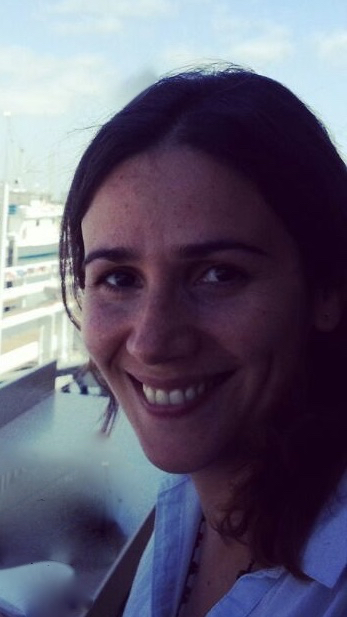
Interviewed scholar: Matilde Córdoba Azcárate (work webpage), Assistant Professor, Department of Communication, University of California, San Diego (mcazcarate@ucsd.edu).
Theme of interview: Stuck with Tourism: Space, Power, and Labor in Contemporary Yucatán, Oakland, CA: University of California Press, 2020.
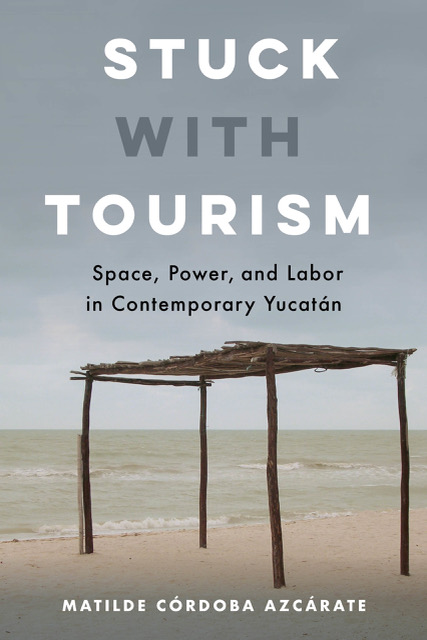
What is the central argument in your book?
Stuck with Tourism’s central argument is that in order to understand and challenge the predatory logics of contemporary capitalism, the agentive forces of tourism in patterns of social and spatial production need to be considered seriously. Tourism infrastructures, policies, situated practices and envisioned futures have become one of the leading forces in the terraforming of the world. Its orderings, both in the physical world and in the realm of cultural imagination, organize social, political and ecological life naturalizing extractive practices at the same time as fostering sacrificial logics for those inhabiting and working in tourism-dependent regions such as the Yucatán Peninsula, Mexico, where the book is based. People in Yucatán make sense of tourism’s predatory logics, its giving while plundering, by saying that they are “stuck to tourism” (engrapados al turismo). It is in this tension that the book sits: acknowledging loss while willingly participating in tourism’s predatory practices in order to make a living.
Stuck with Tourism engages ethnographically with four different sites and state tourism development ventures in order to understand how people make sense and dwell in this contradiction. First, it looks at mass tourism development in the Caribbean coast of the region where state tourism practices heavily rely on processes of land and resource enclosure, particularly, in post-hurricane reconstruction. Second, it explores ecotourism in a natural protected area in the Gulf of Mexico where the simultaneous clash in space and time between international conservation and state development policies has fueled local violence and ecological neglect. Third, it explores Indigenous luxury tourism at restored haciendas in inland Yucatán where selective pasts, heritage buildings and site-specific Indigenous labor are mobilized for corporate profit awakening old forms of servitude and resistance. And fourth, it explores the emergence of a novel factory village-town, a desakota, radically transformed by sewing garments as souvenirs and tourist uniforms from home.
The book does not just show the power of state tourism development in directly carving out landscapes of enclosure, ecological neglect, colonial nostalgia and Indigenous labor. It also shows how service workers, indigenous men and women, governmental technicians, experts, academics and tourists themselves navigate these spaces sometimes helping to reproduce them, but sometimes also challenging them and finding new collaborations and solidarity in the process.
Stuck with Tourism is written in an accessible style. It is also radically interdisciplinary in orientation. The readers I have in mind are students, researchers and academics, but also, urban planners, development and tourism practitioners in general. Each of the chapters is conceived to be able to circulate on its own and it advances theoretical concepts that will be of interest to those interested in tourism, mobilities and development studies in anthropology, geography, urban studies and planning, environmental studies, communication, Latin American studies and Indigenous studies.
What is, in your opinion, your work’s most important contribution to tourism studies?
A major contribution that the book has to offer is to resituate the centrality of tourism as an object of scholarly concern in the understanding of the contemporary geographies of late capitalism. I understand tourism as a major vector animating the physical and imagined territorial transformations of contemporary capitalist logics of consumerism, socio-economic, gender and racial inequality and, environmental degradation. These are predatory transformations that naturalize processes of extraction (of land, labor, bodies, pasts and futures) and that are still predicated upon the privilege of some (to move for leisure, to consume) and the suffering of others. Situating readers in the moral ambivalences that extractive tourism logics of state tourism development create in the Yucatán Peninsula helps to bring to the fore the destructive agency of an industry that is still largely uncritically celebrated by states and international agencies as development. Stuck with Tourism is also helpful to think more broadly about the power of cultural imaginaries to settle and root people in fantasies that are foundational to relations of power. It shows how tourist dreams demand bulldozers, shady transnational corporate agreements as well as the reorganization of the more intimate spaces of childbearing, kinship relations and household dynamics.
What vision of criticality do you uphold in the published title? Does your showcase work belong to a school of thought or a paradigm and why/how?
Stuck with Tourism is an interdisciplinary book. I build on critical geography, the anthropology of space and place, urban planning, tourism and development studies, cultural studies, mobilities and communication scholarship. The book navigates literatures and schools of critical thought from Europe, North America and Latin America written both in English and in Spanish. Ethnographic research partially builds on my PhD on tourism development from a post-development perspective which I did at the Universidad Complutense de Madrid. From there, it organically grew as part of research stays at Lancaster University, when the mobilities paradigm was being developed, as well as through postdoctoral studies at the Earth and Environmental Sciences Program at The Graduate Center, CUNY, an incubator for radical spatial thinking. The role of cultural imagination in engineering landscapes for consumption was curated at the Tourism Studies Working Group, University of California Berkeley, and furthered through the critical approach to cultural studies and political economy that the department of Communication at UC San Diego pioneers. This international scope and interdisciplinary breath translate in a book that is equally attentive to the power of economic structures, the agency of situated social practices and cultural imagination, and that navigates ethnographic, historical, cultural and geopolitical analysis at once.
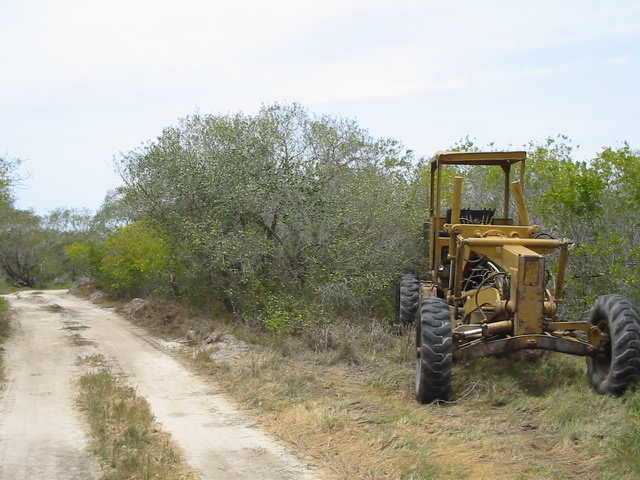
Celestun: Machines preparing the grounds for the construction of a hotel (image credit: Matilde Córdoba Azcárate)
Paramount in the formulation of its main contribution was the very early possibility to engage with ethnography in an experimental way. I combined multi-sited ethnography’s attention to chains of imagination with the historically grounded, scalar and political concerns of global ethnography as well as with the mobilities paradigm attention to the processual and dialectical nature of social life. This methodological combination enabled me to perform analysis at different scales, from the body to the international, without losing sight of each other. It helped me centre regional development policies, state development fixations and neoliberal pressures whilst remaining attentive to processes of place-making and embodied meaning making.
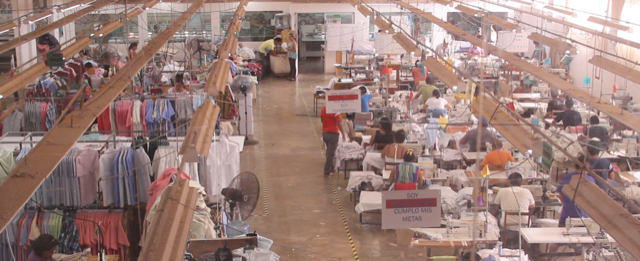
Image credit: Matilde Córdoba Azcárate
This combined method also enabled me to zoom in and out in time and space just as the people I worked with did on an everyday basis and which proved to be of particular value in the analysis of situated gendered and racialized labor struggles as well as still vivid regional legacies of resource extraction. As many in Yucatán said, living and working in a tourism dependent region as theirs (“a world to escape to”), meant living and working in the settler fantasy dreams of/for others. This not always meant acquiescence with state development. Yet, it did involve a level of knowledge about how and when to bend or jump scales, as Neil Smith would put it, that was important to account for. I wanted to remain faithful to this savoir faire and understand and conceptualize how it worked in order not only to denounce particular abuses made in the name of tourism development, but also, to show the life that emerged within them.
Is there an area in tourism scholarship that remains underdeveloped? Do you believe that you may have a role in its development?
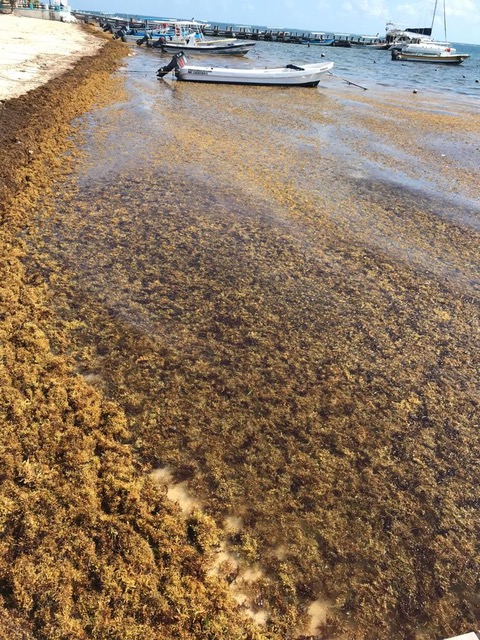
Cancun beaches: the effects of climate change (image credit: Matilde Córdoba Azcárate)
The theoretical concepts of predation-as-extraction and stickiness-as-entrapment as well as the stories and detailed ethnographic materials gathered in Stuck with Tourism directly contribute to a growing body of critical tourism scholarship that envisions the formulation of sustainable and workable alternatives to capitalist extraction, specially but not only, for tourism-dependent economies. With important scholarly exceptions, tourism is still largely absent in policy discussions on climate change, in the conceptualization of processes of capitalist space production and in curriculums that tackle urban planning, climate justice or decolonial alternatives among many others. Yet, as Stuck with Tourism shows, in order to foster equitable and liveable futures that work not only for the privileged ones -those with time and discretionary income to travel for leisure-, but also for those whose labor and livelihoods, health and futures are compromised so that settler fantasies of escape and/or encounter get fulfilled, we need to resist contemporary patterns of tourism predatory extraction. One step in this resistance is to create conceptual tools that help denaturalize the inequalities prevalent in contemporary forms of state tourism development and that remain attentive to the specificities of everyday life and labor. Attuning to these specificities seems to me an urgent task in the face of the current pandemic and the aggravated climate crisis when states and transnational corporations aim to bounce back, again, through tourism development as it was. Stuck with Tourism offers some food for thought for not erring yet again in the same mistakes. It also offers a cautionary tale to contest the inherent colonial logics of current new tourist infrastructure development in Mexico such as Train Maya, a mega development intended to connect the Mexican Southeast and bring yet more tourism to the area.
